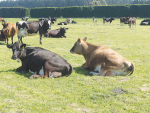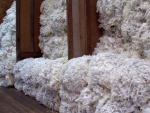A local vet recruitment agency says the vet shortage situation in the country is getting more dire by the day.
Julie South, of VetStaff, says that while the Government’s recent decision to let overseas vets into the country for work is a step in the right direction, it’s nowhere near enough to cover the current shortage.
“They need to allow almost ten times that many in to ease the animal welfare and human stress and mental health issues the shortage is causing,” she told Rural News.
The Government recently gave the green light for 30 overseas vets to obtain special working visas.
South describes the shortage of veterinarians as a two-edged sword: it not only affects the overworked veterinarians and their colleagues, but also causes issues on-farm for farmers and farm managers.
She says the majority of farmers and farm managers have the welfare of their stock at heart, so they’re hurting too when their animals are distressed.
“For example, we’re in spring and this is one of the busiest times on-farm for lambing, calving, and foaling,” she says.
“Veterinarians are needed for all of those situations. It’s not like a farmer or manager can tell a cow to stop calving because there aren’t enough veterinarians right now to perform an emergency caesarean. They can’t just say to the cow go walk around in that paddock over there and come back in three months time when maybe there are enough veterinarians to help with your delivery.
“Mother nature doesn’t work like that.”
South says this time of year is especially busy for large animal and production veterinarians. She adds that the current shortage just adds even more stress to the pre-existing annual seasonal stress.
The decision to not issue visas where needed not only affects the mental wellbeing of those involved in the primary sector, it’s also affecting New Zealand’s future economic recovery from this pandemic, she adds.
“New Zealand needs every dollar it can earn right now and the primary sector is ready, willing and able to make that happen but is being hamstrung by bureaucracy.
“Keeping our borders closed to veterinarians who can immediately reduce the stress levels in NZ could cost lives – human and animal.
“To the best of my knowledge, that hasn’t happened yet. It would be devastating if things go so bad that that happened though.”
VetStaff is a locally owned and operated specialist veterinary recruitment agency. It recruits staff for both companion animal and large production animal veterinary clinics nationwide.
South says the number of placements it makes each year is commercially sensitive but they’re always looking for more veterinarians as demand outstrips supply.
Veterinarians are on Immigration New Zealand’s Long-Term Skills Shortage List but have recently been upgraded to that of ‘Critical Worker’.
To work as a veterinarian in NZ you need at least a bachelor veterinary science degree that’s recognised by the NZ Veterinary Council. Not all overseas universities meet the NZVC’s criteria.



















